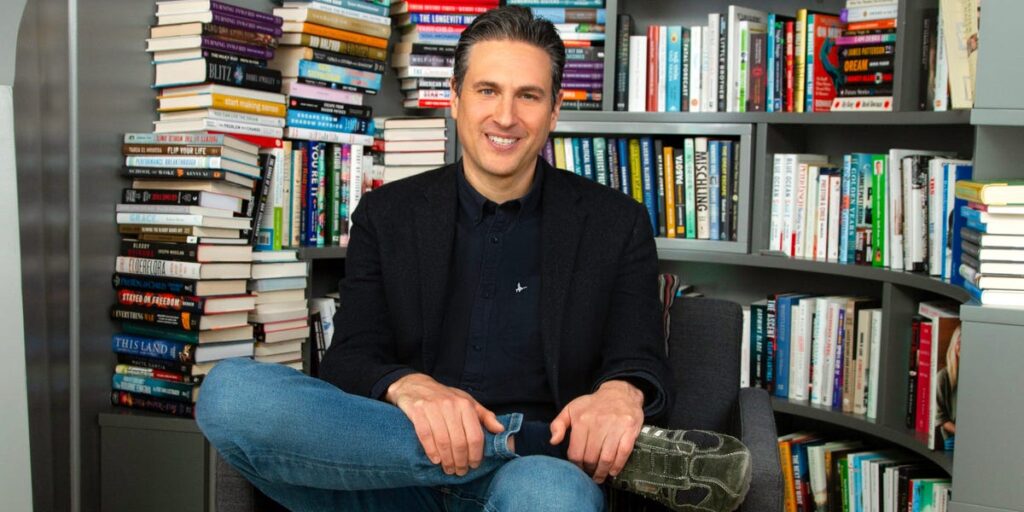This as-told-to essay is based on a conversation with David Shelley, CEO of Hachette Book Group. It has been edited for length and clarity.
As the CEO of a global company, I aim to create a culture built on friendly and trusting challenges. The best business results happen when people are able to challenge themselves and others, including senior leadership.
To accomplish that, I take an untraditional approach, hosting “ask me anything ” (AMA) sessions with employees. These small group talks help foster trust and ultimately benefit the company.
The sessions started after the UK required pay transparency
The idea started about eight years ago, when I was CEO of Hachette UK. The British government required us to publish data about our gender pay gap. Like many companies, our results weren’t great, to put it mildly. Lots of women had very strong feelings about that.
My intuition told me it would be much better to talk about it out in the open. I started hosting sessions with small groups. During 15-hour sessions, women told me about the impact having a child had on their careers and the micro-aggressions they experienced at work.
I heard information I wouldn’t otherwise have had as a CEO. It helped me understand the issue a lot better and formulate a plan to fix it. I think it was helpful for the staff to feel that I was really listening to them. I decided to do these sessions whenever a major issue came up in business.
I brought the idea to New York City to build trust
About 18 months ago, I started working in New York as CEO of Hachette Book Group. Anytime there’s a transition in business leadership, trust needs to be rebuilt. People need to know I truly encourage transparency, challenge, and critique; I’m not just saying it.
To reinforce that, I hosted about 25 hourlong listening sessions over three months. I’d sit around the table with 10 to 12 employees, often over lunch, and ask them to tell me what’s on their mind. It was very helpful. When those wrapped up, I started hosting AMA sessions.
Americans are willing to ask hard questions
I sometimes get hard questions — about running a for-profit company, about capitalism, or why certain titles are published and others aren’t. There hasn’t been a question that I’ve shied away from (though sometimes I genuinely don’t know the answer and have to go ask the experts in that niche).
It’s a cultural cliché, but I’ve noticed Americans don’t hold back. They’re a lot more willing to have hard conversations face-to-face. In the UK, people often emailed me after to ask things they weren’t comfortable asking in front of the room. Here, people are refreshingly to the point.
Listening sessions led to a change in how we discuss pay
The listening sessions and AMAs build trust and transparency at the company — something I care deeply about. They also impact policy. When I started in New York, I heard again and again from employees that they were frustrated with merit-based raises. The process felt arbitrary and mysterious. I must have heard that 50 times.
In response, we created a pay rubric that outlines the pay range for a job and the skills needed to be at the high end of the range. Managers can now turn to that, and employees actually understand what’s going into their wage calculation. There’s more work to be done, but that moved us to more honest conversations.
This approach fits my personality
Common business advice says to lean in. I love to do that. I have a natural curiosity about people, and can be quite an honest, oversharing person.
My business coach once gave me advice she’d never given anyone else: she said while most people need to lean in more, I might need to lean out a bit. I laughed, but there’s some truth to it. I have a tendency to try to engage with everyone.
An open, conversation-driven approach to leadership works with my personality, but it doesn’t work for everyone. In general, when it’s modeled at the top, people get on board. However, there have been times when senior leaders aren’t comfortable with my approach, and it doesn’t make sense to keep them on.
The more I’m challenged as a leader, the better my results will be. That’s true at every level of the business, so I strive for open communication throughout.
Read the full article here


